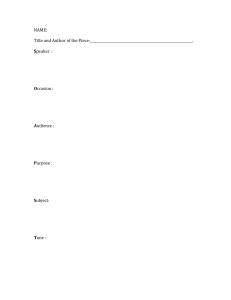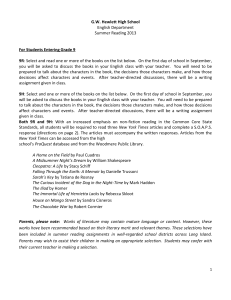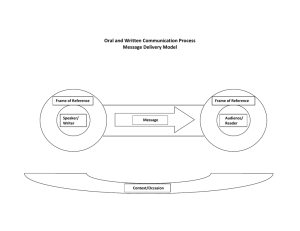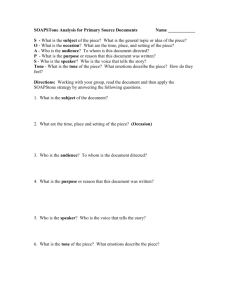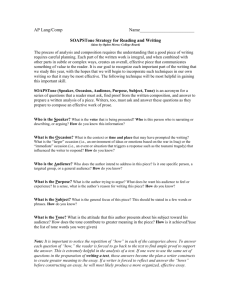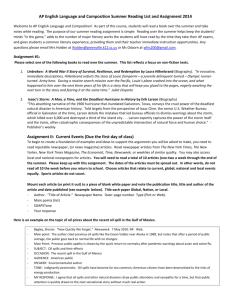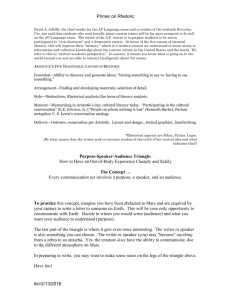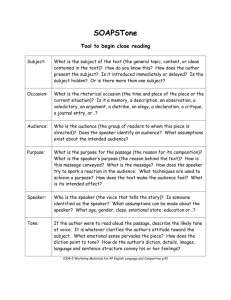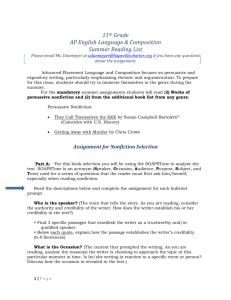File
advertisement
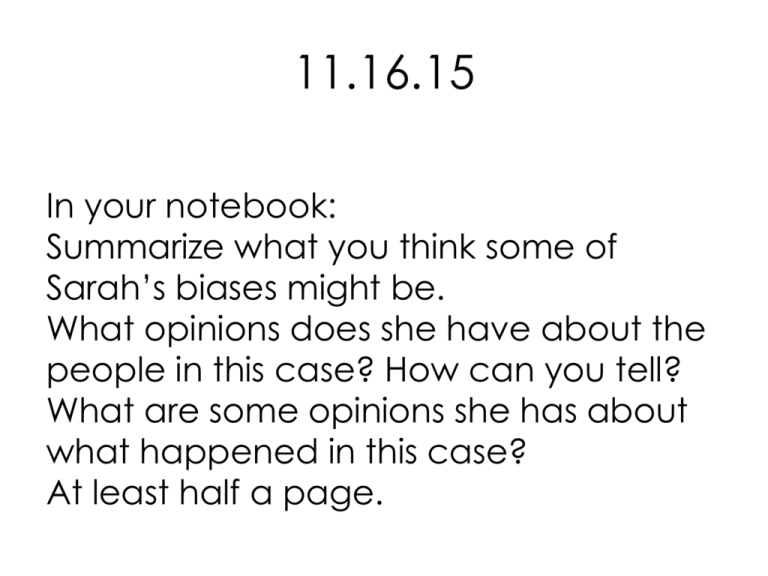
11.16.15 In your planner: 3 things that you are excited for this week!!! In your notebook: Summarize what you think some of Sarah’s biases might be. What opinions does she have about the people in this case? How can you tell? What are some opinions she has about what happened in this case? At least half a page. Rhetoric Notes Part 2: SOAPStone Rhetoric is… …the art of effective or persuasive speaking or writing; using language to persuade. Rhetoric is always situational. In other words, the way a writer or speaker uses their language depends on the speaker, occasion, audience, purpose, and subject. Speaker Writers often assume a persona—the character the speaker creates when he or she writes or speaks— depending on the context, purpose, subject, and audience. Are you speaking as a poet, comedian, or scholar? Are you speaking as an expert on ice skating, popular music, or a specific software program? Are you speaking as a literary critic in your English class or as a concerned citizen in your local community? Occasion The context that prompted the writer—the time and place of the piece. Writing does not occur in a vacuum. All writers are influenced by the larger occasion: an environment of ideas, attitudes, and emotions that swirl around a broad issue. Then there is the immediate occasion: an event or situation that has triggered a writer or speaker’s response. Sometimes context arises from current events or cultural bias (writing about freedom of speech in a community that has experienced hate graffiti). Audience What does the audience know about the subject? What is the audience’s attitude toward it? Is there common ground between the writer’s and reader’s views on the subject? Purpose The goal that the speaker or writer wants to achieve. For example: trying to win agreement, persuade us to take action, evoke sympathy, make someone laugh, inform, provoke, celebrate, repudiate, put forth proposal, secure support, or bring about a favorable decision. Subject Writers must first choose a subject and then (1)evaluate what they already know about it, (2)what others have said about it, (3)and what kind of evidence or proof will sufficiently develop their position. Tone The attitude of the writer or speaker has toward his or her audience or subject. The spoken word can convey the speaker's attitude and thus help to impart meaning through tone of voice. With the written word, it is tone that extends meaning beyond the literal, and a writer or speaker must convey this tone in their diction (choice of words) and syntax (sentence construction). Logos Definition: appeal to reason by offering clear, rational ideas. Give an example of how someone could be persuasive using clear, rational ideas. Ethos Definition: an appeal to character; to demonstrate credibility or trustworthiness Give an example of how someone could be persuasive by appealing to someone’s character. Pathos Definition: an appeal to emotion Give an example of how someone could be persuasive by appealing to the emotions of their audience.
